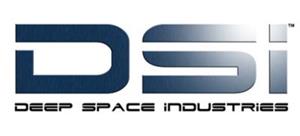Deep Space Industries is a California company dedicated to asteroid mining. It was founded in 2013 and also has offices in Florida and Luxembourg. While their ultimate goal is probably decades in the future, in the meantime they are working on innovative propulsion systems.
The Comet CubeSat and Microsatellite Propulsion System is one of DSI commercial products. The system uses water as a propellant. The water is heated and expelled from the spacecraft to provide thrust to adjust orbits.
The Comet system provides eighty percent of the specific impulse of dangerous flammable propellant systems at about twenty percent of the cost. It utilizes less electrical energy that ion propulsion systems. The Comet system is approved to fly on multiple launch vehicles as a part of a rideshare spacecraft. No flammable propellants are allowed on such rideshare launches. The Comet system is designed to be easy to integrate with a variety of small spacecraft including CubeSats and micro-satellites.
DSI has a contract to produce its Comet system for BlackSky Earth observation satellites. The contract calls for a first order of twenty Comet propulsion systems. Twenty of these satellites are scheduled to be launched by 2020. This is the first phase of an Earth observation system managed by BlackSky which is a subsidiary of Spaceflight Industries based in Seattle, WA. Globlal-1, the first BlackSky satellite will be launched in 2018.
Spaceflight Industries is involved in a partnership with The Space Alliance which is a French-Italian joint venture between Thales Alenia Space and Telespazio. This joint venture is setting up a new company named LeoStella. Half of the new company is owned by Spaceflight Industries and half is owned by Thales Alenia Space. LeoStella will construct the fleet of satellites for the BlackSky project. Ultimately, the plan is for there to be sixty BlackSky satellites in orbit.
The vice president of space operations for Spaceflight Industries said in a press release, “The launch-safe propulsion features of the Comet system are well-aligned with BlackSky’s performance needs to enable affordable and flexible satellite systems. We are looking forward to working with the DSI team on this and future projects.” The DSI CEO said that, “Customers like LeoStella are exactly why we developed the Comet propulsion system.” He went on to say that the low-pressure, non-toxic Comet system is a good choice for the BlackSky project.
DSI says that the Comet system is the first product in what they plan to be a whole line of “green” propulsion systems for small satellites. One of the reasons that DSI is using water as a propellant is because it is believed that water will be a readily available resource on asteroids. This means that spacecraft that utilize water as a fuel could be refueled on asteroids.
DSI is also developing the Meteor system to replace bipropellants currently used to maneuver spacecraft. The Meteor system fuel and oxidizer do not spontaneously burn when combined and are non-toxic. They are suitable for rideshare which is not true for many bipropellant systems. The Meteor fuel and oxidizer are only about ten percent of the cost of a popular bipropellant fuel. Both the fuel and the oxidizers can be extracted from asteroids.
